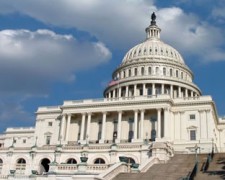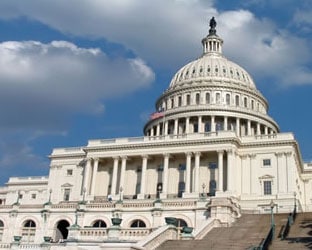 FCC Chairman Julius Genachowski suggested to the House Communications Subcommittee that channel repacking policy is the next big hurdle to clear to keep television incentive auctions on track. But the issue weighing heavy on the minds of legislators seemed to be guard bands.
FCC Chairman Julius Genachowski suggested to the House Communications Subcommittee that channel repacking policy is the next big hurdle to clear to keep television incentive auctions on track. But the issue weighing heavy on the minds of legislators seemed to be guard bands.
The hearing featured testimony from all five FCC commissioners on progress made on implementing the FCC’s efforts to reclaim spectrum in the television band for wireless broadband use.
In general, Republicans in Congress and among the five FCC commissioners believe that too much of the guard band allocation is going to be held back from auction and being reserved for the free use of unlicensed devices – and this will significantly damage the revenue yield from the auctions.
Democrats, on the other hand, believe that the revenue loss will not be that great, and that the innovation the unlicensed community will unleash will more than pay for itself. FCC Chairman Julius Genachowski went so far as to suggest that any income lost by not auctioning off guard band spectrum may well come back in the form of tax revenue, as was the case with unlicensed innovations such as WiFi.
Among the legislators, both sides suggested that the statute as written supported their own viewpoint. Republicans emphasized the fund-raising portion of the statute, Democrats the public safety and innovation portion.
Anybody looking for news about the impact of incentive auctions on television broadcasters will have to find it elsewhere, for the most part.
FCC Commissioner Robert McDowell expressed his skepticism that broadcasters will voluntarily relinquish as much spectrum as policy-makers have been hoping (and said that is one of the reasons that more guard band spectrum should be auctioned, to meet revenue goals under the statute).
Genachowski noted that the NPRM put out by the FCC was as concrete as possible, to elicit concrete comments from stakeholders. Among the big issues is channel repacking – he said one of the next big steps in staying on schedule will be to nail down policy on this count.
Committee Chairman Emeritus John Dingell (D-MI) did get Genachowski to agree that protections for broadcast television written into the statute would be honored. That included protected contour size/audience reach and the necessity for treaties with Canada and Mexico.
Chairman Julius Genachowski told Doris Matsui (D-CA) that he is optimistic that there will be sufficient broadcaster participation. He also noted that there are other spectrum bands being opened up as well, so that there is no reliance on one single source of spectrum for encouraging more wireless service.
Former Chairman Joe Barton (R-TX) brought up the touchy subject of low power television. See separate story here.
RBR-TVBR observation: Commissioner Robert McDowell may well be on to something. He said he is skeptical that a great number of broadcasters are going to be willing to trade their spectrum for a one-time auction windfall. From what we’ve been hearing, he may well be correct.
McDowell pointed out that the places where spectrum is most needed, and will likely raise the most auction money, are also the places where it is most profitable to broadcast and where surrendered spectrum is likely to be minimal.
It’s not rocket science. So our advice is for Washington forces to get those rocket scientists working on making more efficient use of the spectrum that is already available, because that may very well be the ultimate solution to the spectrum crunch.





